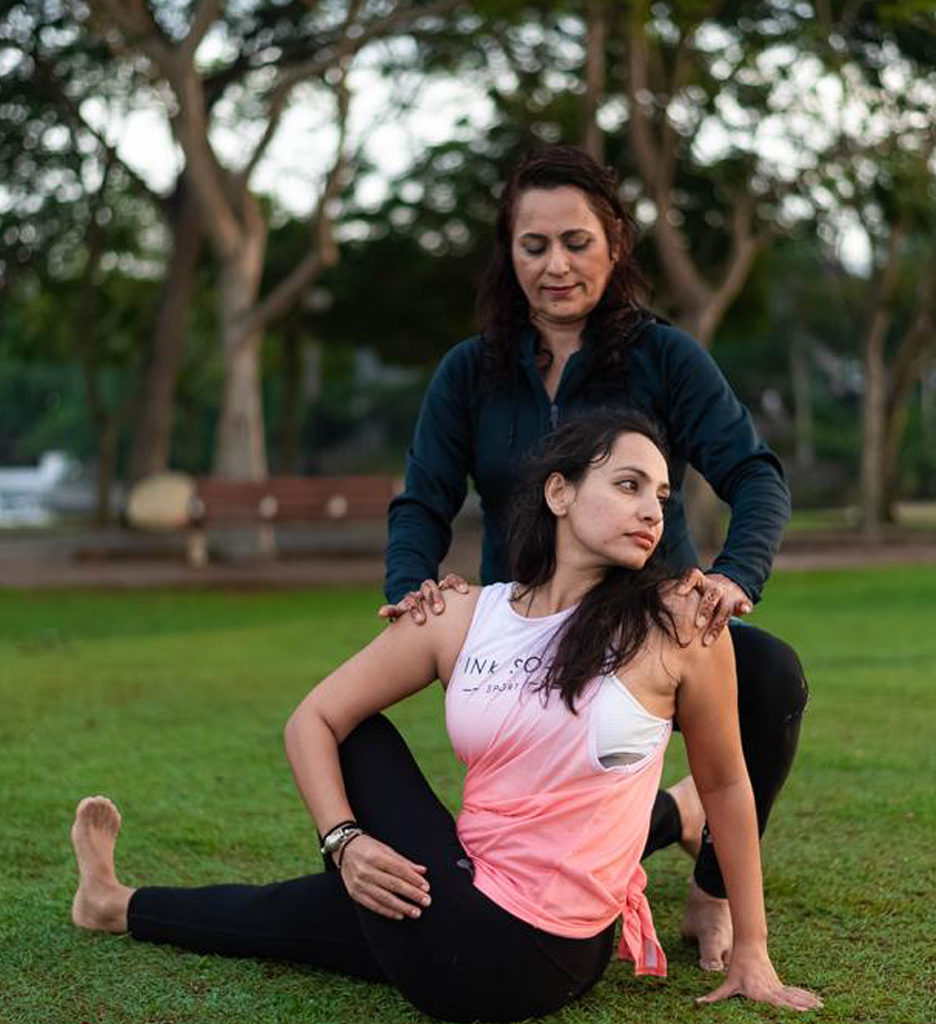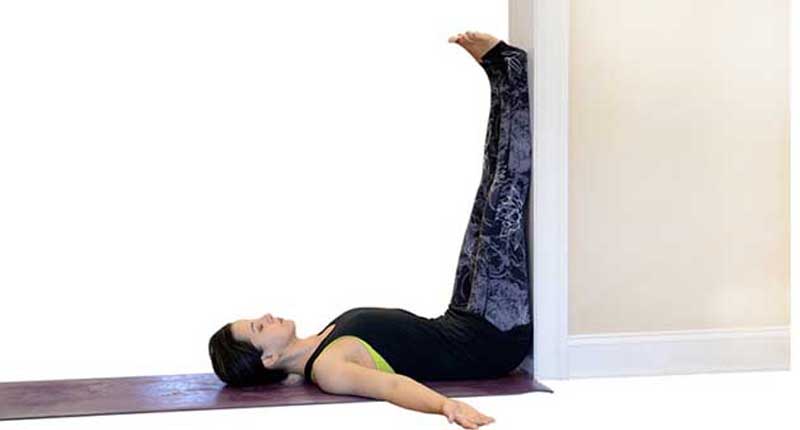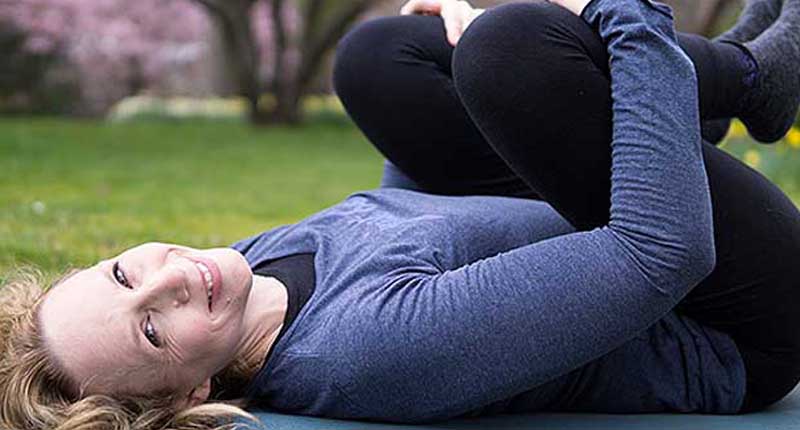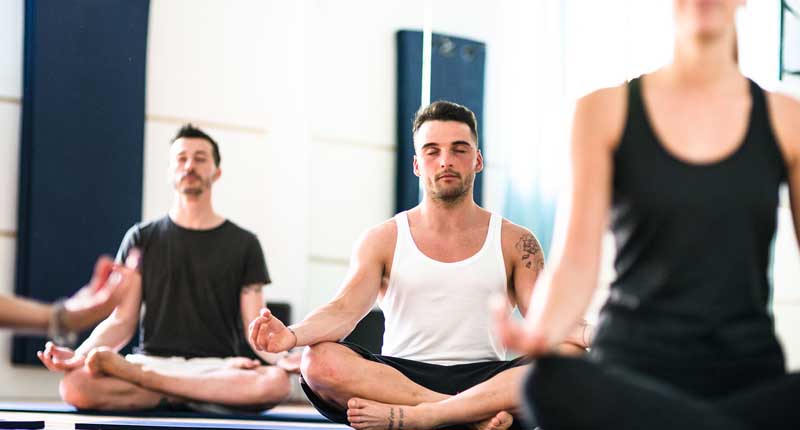
What is Yoga Therapy
It’s a conventional way of improving both our mental as well as physical health through meditation, yoga postures, breathing exercises and other yogic techniques that enables us to blend in well with our mind, body and spirit. People’s lifestyle keeps changing, so it’s crucial to inculcate certain practices of yoga and evolve in it. This demands a new age yoga therapy. Under the guidance and expertise of Abha Bajaj, the yoga therapy courses stretch to a wide range of therapeutic modalities, including elements from both physical therapy and psychotherapy.
Our Services:

Yoga Therapy for Neck, Back and shoulder Pain
1 Session $100/-
10 sessions $900/-
15 sessions $ 1250/

Yoga therapy for Sciatica and lower back pain
1 Session $100/-
10 sessions $900/-
15 sessions $ 1250/

Yoga Therapy for Post-Surgical Rehabilitation
1 Session $100/-
10 sessions $900/-
15 sessions $ 1250/

Yoga therapy is a growing field and scientific evidence has begun to emphasize its efficacy. It is used to treat existing mental and physical health issues, but can also be used as a self-care strategy for prevention and maintenance.
Yoga therapy is well established as a treatment for depression and anxiety. A meta-analysis cited in the Primary Care Companion for CNS Disorders found that yoga therapy also shows promise for the treatment of posttraumatic stress (PTSD) and schizophrenia. Additionally, yoga therapists have begun to develop treatment modalities to suit children with autism.
Because of its concentration on mind and body integration, yoga therapy is also used to address many physical health issues. It has been effectively used to treat back pain, heart conditions, asthma, chronic fatigue, hypertension, multiple sclerosis, and side effects of chemotherapy.
Meditation does not guarantee relaxation, serenity, or bliss. Relaxation can certainly be a side effect of it, but meditation involves a range of feelings, not simply the nicer ones.
PRACTICE AND BENEFITS OF YOGA THERAPY

Yoga therapy is practiced in a wide range of formats. Physical therapists, for example, often implement yoga techniques in their delivery of massage and other treatments. Yoga therapy practice can resemble physical therapy, rehabilitative therapy, and/or psychotherapy. Unlike a standard yoga class, yoga therapy sessions are typically conducted in one-on-one or small group settings. Yoga therapy can be provided as an adjunct therapy to complement other forms of treatment, or it can be used to directly treat a specific issue. Yoga techniques range from simple to advanced, and can be enjoyed by people of all ages.
Potential benefits from yoga therapy include stress reduction, psychological well-being, improved diet, and efficient functioning of bodily systems. A 2011 qualitative study from Inkanyiso: Journal of Humanities and Social Sciences examined the effects of yoga therapy on anxiety. The findings not only indicated that yoga therapy effectively reduced subjects' anxiety, but improvement across several dimensions of physical and mental health including physicality, relaxation, and mindfulness.








